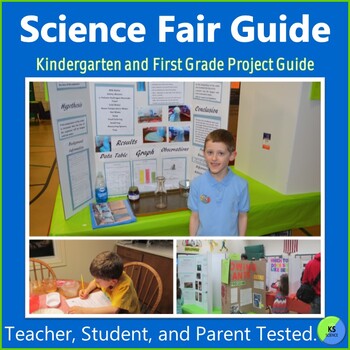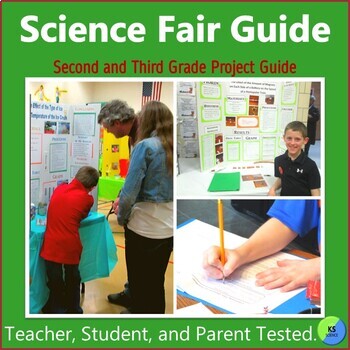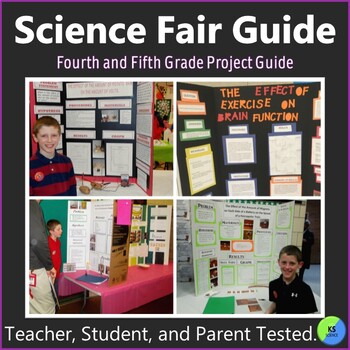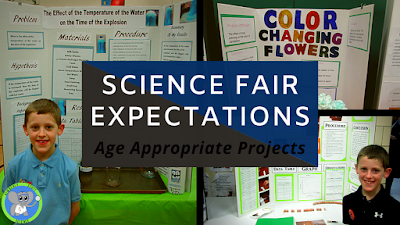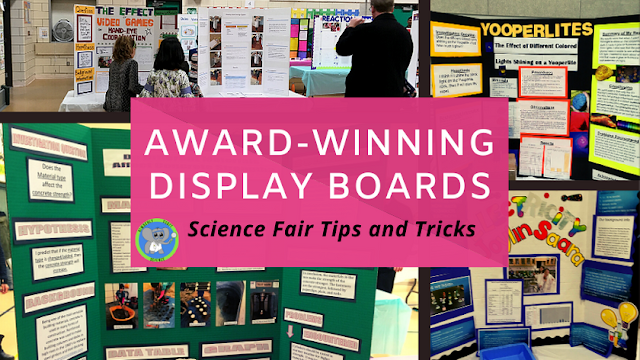Best First Time Science Fair Experiment Ideas
Your child comes home and tells you they want to do the science fair. Many parents cringe at the thought of this.
What will we come up with? I don’t know how to do a project? Do we have time? Do I know enough to help them? Don’t cringe. It doesn’t have to be that complicated. Keeping it simple is actually better. You don't want an overly complicated experiment because the student won't be able to explain the science. You want a clear experiment that uses easy-to-find supplies. It shouldn’t be expensive. You want something that looks fun and is age-appropriate.
Tips for coming up with your First Science Fair Topic
1. Pick a topic that you are interested in.
2. Choose something that uses items you can find at the grocery store or you already have in your house.
3. Don’t pick an experiment that is expensive. That comes when you are participating in your 3rd or 4th fair, and you know you love them.
4. Don’t just copy an experiment you find online. Make it original. That means you come up with your own change and method for collecting data.
Top Science Fair Projects for Your First Timer
Baking Projects
Science is everywhere in baking. We recommend baking cookies. First, make the recipe exactly as it says. Then, decide to change one thing and measure the effects of that change.
Examples of changes:- The amount of baking soda, flour, salt, or butter.
- The temperature of the oven.
- the height or width of the cookies.
- Time how long they take to bake.
- People can rank the taste of the cookies.
Milk Experiments
There is so much science in milk.
A popular experiment is rainbow milk. This experiment can be done for under $10.00. You probably have all of the supplies in your house. Children love the swirling colors.
Children can easily come up with a change. They can change the type of milk, the amount of milk, the temperature of the milk, etc.
They can time how long it swirls or rank the amount of swirling.
It is very age-appropriate for young kids, and older kids enjoy it too.
We also recommend making butter. It is another real-world topic they can relate to, and inexpensive.
Forces and Motion Experiments
Kids have so many toys that move.
Matchbox cars, kites, marbles, and the list goes on.
Does the surface of the ramp affect how far a matchbox car rolls?
All you do is cover a ramp with sandpaper, plastic wrap, wax
paper, etc. Roll the car down the ramp and measure the distance
traveled.
We had a family do an experiment with sledding. Does the weight on
the sled affect how far it travels? The boy went down the sled. The
dad went down the sled. Then they went down the sled together. So
much fun, and they already had the supplies. What a wonderful
family experience.
Egg Experiments
Eggs are inexpensive. Did you know eggs are really strong?
Take four eggs and arrange them in a square on a flat surface. Start
balancing books on top of them. How many books can the four eggs
hold? This will surprise the kids.
To make a change, compare different types of eggs, such as store-
bought, farm eggs, organic, and free-range.
Another favorite is soaking an egg in vinegar. The vinegar will
remove the eggshell, but leave the egg in the membrane. So cool!
Try different types of vinegar and compare how long it takes to
dissolve the shell.
Product Testing
Kids love to compare products.
Which paper towel is the strongest?
Which cleaner works the best?
Students love testing products and sharing the results.






